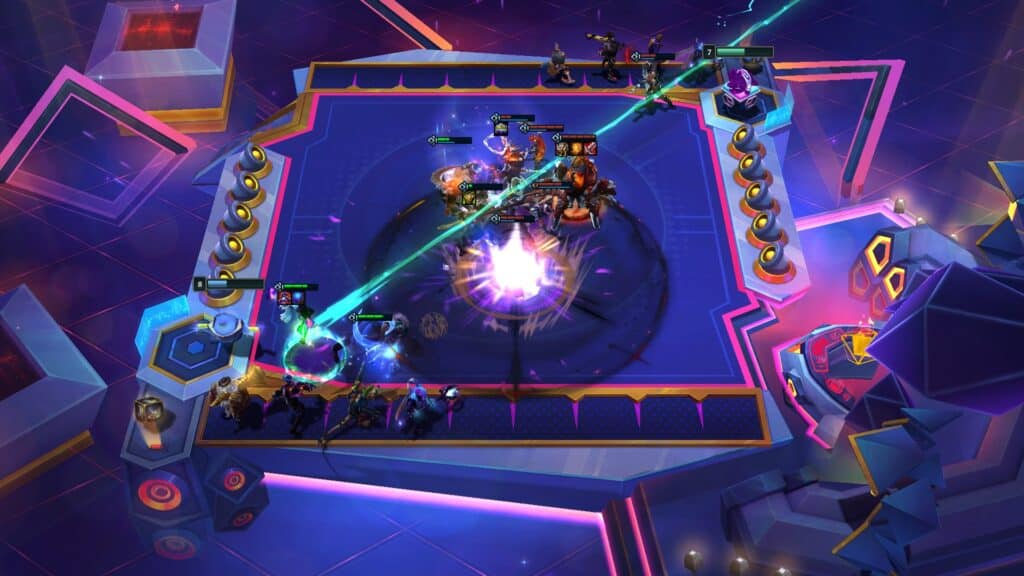
Stephen ‘Mortdog’ Mortimer, Gameplay Director of Teamfight Tactics at Riot Games, has responded to growing community concerns about the state of competitive TFT, acknowledging several key issues affecting high-level play.
The response came after a Reddit thread titled ‘Competitive TFT is no longer fun to play‘ gained significant traction within the community, highlighting frustrations about early game commitment and lack of flexibility in team compositions.
“TFT has been around for six years now, and players’ understanding of the game has evolved, which is creating some new challenges that are on the top of our mind as well right now,” Mortimer stated in his response.
Early Commitment Concerns Acknowledged
Mortimer agreed with the community’s assessment that the game forces players to commit to strategies too early, specifically at stage 2-1. He attributed this to multiple factors including committal augments, the stacking nature of fruits, item rigidity and optimised trait structures.
According to Mortimer, while some early direction is important for players who prefer initial guidance, the current state has swung too far towards early commitment. This limits strategic flexibility and reduces the skill expression that competitive players value.
The Gameplay Director also acknowledged that current compositions are too optimised, making mid-game pivots unrealistic. He explained that switching from established lines like Yuumi compositions to alternatives such as Ryze or Karma carries too high a cost, as players would need to restructure their entire board to match the optimised supporting units.
Vertical Traits Under Scrutiny
The discussion around vertical traits proved more nuanced. While Mortimer recognised that some compositions rely heavily on trait bonuses, he pointed to counter-examples where individual unit power dominates.
“The highest cap comp in the game is around Varus/TF/Zyra and basically ignores traits completely,” he noted, adding that Malphite Snipers similarly prioritises unit strength over vertical trait bonuses.
The community had also suggested reintroducing support units as a potential solution. However, Mortimer expressed scepticism about this approach, arguing that support units would likely become another optimisation question rather than addressing the core flexibility issues.
Looking Ahead at Competitive TFT
Mortimer identified the fundamental challenge facing TFT as the perception and reality of optimisation leading to rigid gameplay experiences. He explained that at any decision point in team building, there tends to be a mathematically correct answer.
“Unless the balance around this decision is PERFECT, there will always be a perceived correct answer to any decision laid out like this,” Mortimer stated.
While no specific solutions were announced, Mortimer assured the community that the development team experiences the same frustrations when playing and is actively working on improvements. The acknowledgement represents a significant step in addressing competitive concerns that have affected player retention in higher ranks.
The original community post was created by CHRISTOPHO, a Challenger-ranked player who has maintained that rank consistently for several years. Their critique focused on how design decisions have made competitive TFT much less enjoyable compared to earlier sets, particularly those before Set 7.
As TFT continues to evolve in its sixth year, and Riot seemingly invests more resources into the game’s competitive scene, the balance between accessibility for newer players and depth for competitive players remains a central challenge for Riot Games’ development team.
The post TFT dev addresses competitive concerns about game rigidity appeared first on Esports Insider.






